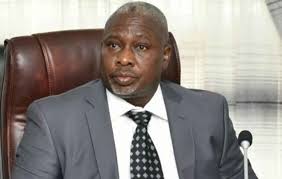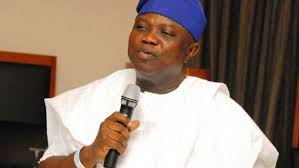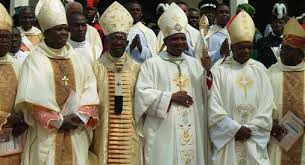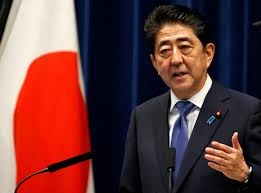Category: News
-
BREAKING: Protesters clash at APC Secretariat in Abuja
Protesters are attacking each other at the National Secretariat of the All Progressives Congress in Abuja over a yet-to-be ascertained issue. READ ALSO: BREAKING: Court nullifies impeachment of ex-Kogi deputy gov, Simon Achuba We learnt that the protesters, who had also gathered to protest against the APC National Chairman, Adams Oshiomhole, on Tuesday, turned on one another…
-

BREAKING: Court nullifies impeachment of ex-Kogi deputy gov, Simon Achuba
The impeachment of the former Deputy Governor of Kogi State, Simon Achuba, has been declared null and void by a State High Court in Lokoja. Achuba was in October 2019 impeached by the State House of Assembly. READ ALSO: Ambode loses bid to stop probe into purchase of 820 vehicles But Justice John Olorunfemi on Wednesday…
-

Ambode loses bid to stop probe into purchase of 820 vehicles
Justice Yetunde Adesanya of an Ikeja High Court, on Thursday, struck out a suit filed by former Governor Akinwunmi Ambode of Lagos, seeking to stop his probe by the state Assembly over the purchase of 820 buses for Bus Reform Project. According to the judge, an investigation is not an indictment. “The claimant (Ambode) has…
-

Bishops-Failure to arrest culprits shows FG’s insincerity on killings
The Catholic Bishops Conference of Nigeria on Wednesday said the Federal Government had not shown willingness to end the spate of killings by the Boko Haram insurgents and herdsmen in the country. The Catholic bishops, who stated this in a statement by their President, Augustine Akubeze, and Secretary, Camillus Umoh, said the failure of the…
-

Japan PM calls for closure of public schools over virus
Japan Prime Minister Shinzo Abe called Thursday on public schools to close nationwide from March 2 to prevent the spread of the new coronavirus. “The government considers the health and safety of children above anything else,” Abe said. “We request all primary, junior high and high schools… across the nation to close temporarily from March…
-

Samuel Eto arrives Nigeria for Trophy 5-A-Side
Football fans in Nigeria are in for a big thrill as Samuel Eto’o Fils, one of Africa’s greatest football legends has arrived in Lagos for the launch of the 2020 edition of Castle Africa 5s, the continental leg of the Trophy 5-A-Side developmental football tournament. Eto arrived in Lagos yesterday and was received by the…
-
Edo people happy with Obaseki, Osadolor
By Ikhili Ebalu, Benin City A Senior Special Assistant to Edo State Governor, Hon. Wellington Osadolor has described the political crisis created by the disbanded Edo People Movement (EPM), in the state as nonsense as the people are overwhelmingly happy with the work that the governor is doing in the state. He said the governor…
-

Coronavirus: Saudi Arabia suspends visas for pilgrims
Thousands of Nigerians are set to be affected as the Kingdom of Saudi Arabia has suspended visas for pilgrims wishing to visit Mecca. The move was part of attempts to curb the spread of Coronavirus. The foreign ministry said on Thursday it suspended entry to the Kingdom for the purpose of Umrah (lesser hajj) and…
-

The Nigeria Immigration Service (NIS) has denied conflicting video and reports trending on media over bribery allegations by its officials. The Service Public Relation Officer, Mr Sunday James disclosed this in a statement made available on Wednesday in Abuja. “The attention of the Comptroller General, NIS, Mr Muhammad Babandede, has been drawn to a reposted…
-

Bayelsa judgment review: Adegboruwa asks NBA to sanction lawyers
A Senior Advocate of Nigeria, Mr Ebun-Olu Adegboruwa, has called on the Nigerian Bar Association to sanction lawyers involved in the application that sought the review of the Supreme Court’s February 13, 2020 verdict on the Bayelsa State governorship election. In its February 13 verdict, the Supreme Court nullified the election of David Lyon of…